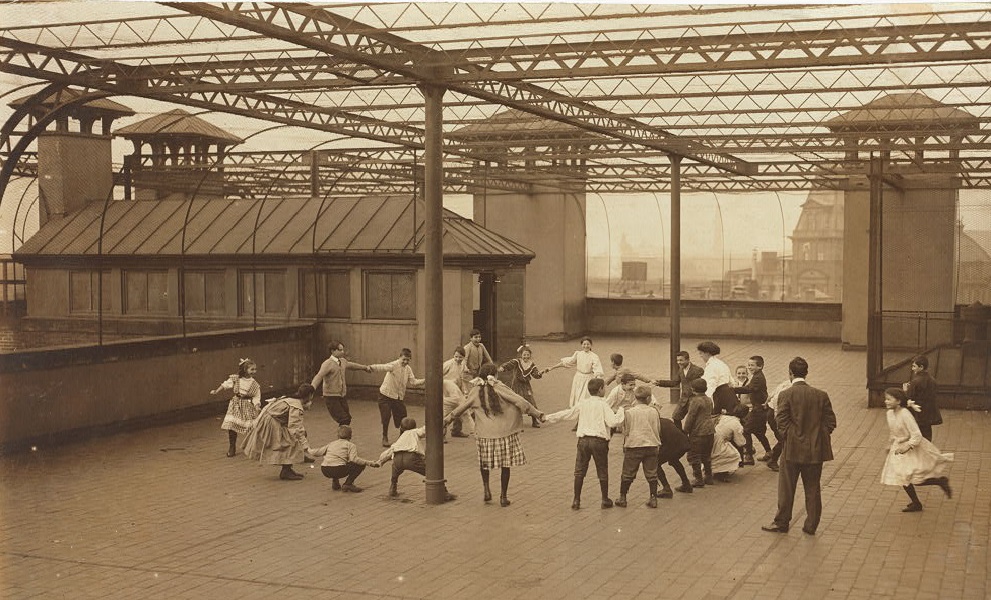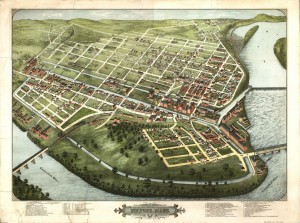
ENGAGEMENT STRATEGIES
Engagement is at the heart of Universal Design for Learning.
This page offers a number of strategies specific to the study of history and the social sciences. Allow students to engage with course content in a variety of ways–always with the focus on the needs of your particular learners. Some students require consistent classroom routines. Yet alternating routines offers rewards for those students who thrive on novelty. Such students will benefit from self-directed, independent learning. Collaboration and peer support in group assignments can be structured to support both groups. Having students move around the room in teams as they examine primary documents allows them to hear a variety of perspectives in an organized fashion. Tying in course content to the students’ lives is crucial. When students are able to make personal connections, the material comes to life and soon the classroom is full of learners who are motivated and feel purposeful.
The strategies presented here encourage a variety of activities to engage students in the study of history. These activities can be used at various points during the lesson. Students with different learning styles will benefit from the teacher using a mix of these activities throughout the school year. Each strategy is flexible and can be used with many primary source sets.
Explore Supports for Inclusive Civic Engagement.
Emerging America continues to take a lead role in Massachusetts and nationally in advocating for full inclusion of students with disabilities in civic education and civic engagement. Link to our collection of inclusive civics strategies, tools, and activities, and proposed policies in support of this goal.
Talking Tableau
 Teacher adds speech bubble to photo at Accessing Inquiry face-to-face course. (At school, students would be the ones in this role.)
Teacher adds speech bubble to photo at Accessing Inquiry face-to-face course. (At school, students would be the ones in this role.)
Add dialogue bubbles to photographs or other depictions with people, and ask students to come up with what the people may have been thinking or saying. This technique allows students to be imaginative and playful, and invites them to take the perspective of someone in another historical time and situation. Have students act out their bubbles to really make the source come to life.
Read about how activity like this increases learning and memory. See how Talking Tableau is used in our Model Lesson: Puerto Rican Identity
Question Formulation Technique
Read Esther Lee's account here about a class of students with disabilities for whom the Question Formulation Technique engages students deeply in a unit on child labor, fueling interest and engagement in a civic action project.
Timeline of Primary Sources
Students can take a set of primary sources and guess the correct chronological order. The challenge is for students to create a story out of the primary sources from start to finish. Students use higher level thinking skills and collaboration to better understand the historical context. Students can share their answers with each other and look for common themes.
See how the timeline activity is used in our Model Resource: Disability History
Map Analysis
 Provide students with two maps of the same location from two different times in history. Students complete a graphic organizer to determine what is different about the city or town based on the two maps. Students then examine the reason for the changes that have been made over time. These map activities are great for teaching industrialization, urban development, and migration.
Provide students with two maps of the same location from two different times in history. Students complete a graphic organizer to determine what is different about the city or town based on the two maps. Students then examine the reason for the changes that have been made over time. These map activities are great for teaching industrialization, urban development, and migration.
See how Map Analysis is used in our Model Lesson: Mapping Industrialization in Springfield
Engagement Projects
Civic Engagement offers a means to engage diverse learners in authentic work that profoundly motivates because it matters in the larger world. Emerging America's Civic Education page offers concrete tools to fully include Students with Disabilities in civic engagement projects.
Local History Projects are an opportunity to pursue service-learning and civic engagement by finding information about issues of historic and contemporary interest to the students’ own community. Projects can allow students to try out, sharpen, and show off skills that include yet extend beyond conventional classroom skills. Learn from Emerging America’s decades of direct experience leading civic engagement projects in its Windows on History program.
Arts Engagement Projects – Projects that invite students to express the content they are learning in an art piece, whether that piece is a script for a radio drama, a visual display, a physical enactment of an idea in a skit or tableau, or a spoken word or music piece are all effective ways to engage a class. Art projects can deepen emotional investment, provide choice, and allow for differentiation. Integrating arts into the classroom can also uncover areas of strength and build confidence and pride in some students whose understanding is showcased in a new format. Take a look at the Monument Making project described in the linked Facing History video (4:36 minutes). Students completed a study unit on the Holocaust by designing and constructing a memorial sculpture that was made of cement casts of their own clasped hands.
More Teaching Strategies for Engagement
A selection from the searchable Emerging America Teaching Resource Library. Also see many more descriptions of engaging activities on the Inquiry Strategies page.
- Incorporating Visual and Performing Arts - from University for the Arts
- Quick Ideas for Engaging Students in Active Learning - from Teaching Tolerance
- Recommended Social Justice Books on Disability - lists of books by topic
- Visual Primary Source Analysis Tool: Quadrant Analysis
- Zoom-In Visual Inquiry Activity


